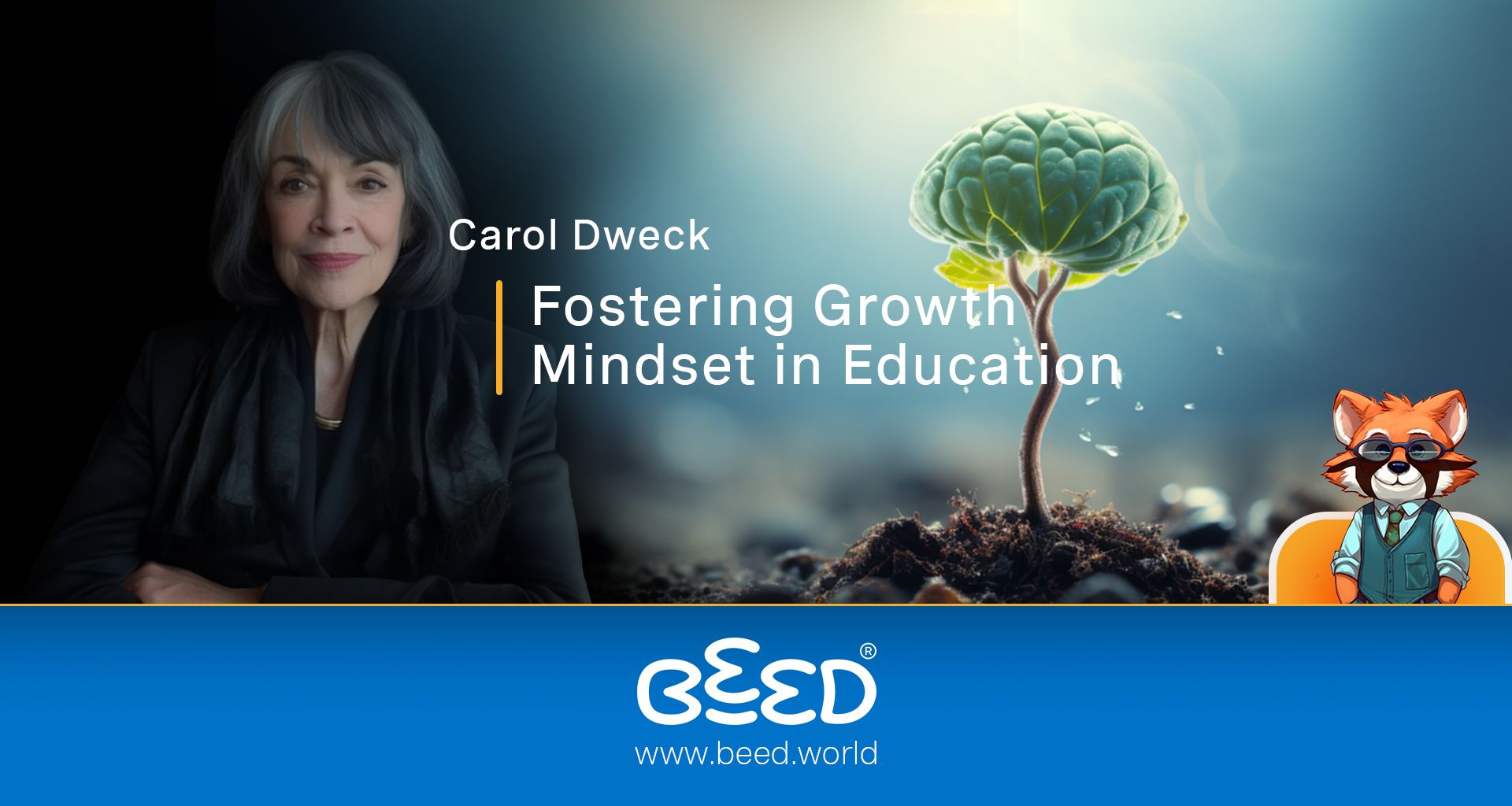Fostering Growth Mindset in Education

Carol Dweck is a Stanford University psychologist and the author of the book "Mindset: The New Psychology of Success." She is known for her research on growth mindset, which is the belief that intelligence can be developed through effort and perseverance.
Dweck's experiment on growth mindset began in the early 1970s, when she was studying children's motivation. She found that some children were likelier to give up on challenges than others. She labelled these children as having a "fixed mindset."
Other children were more likely to persist in the face of challenges. Dweck labelled these children as having a "growth mindset."
Dweck then conducted experiments to test the effects of fixed and growth mindsets on student achievement. In one experiment, she gave students a difficult puzzle to solve. She then praised some of the students for their intelligence and others for their effort.
The students who were praised for their effort persisted in the puzzle for longer and solved more problems than the students who were praised for their intelligence.
Dweck's research has shown that a growth mindset has several benefits for students. Students with a growth mindset are more likely to:
Persist in the face of challenges.
Take on new challenges.
Learn from their mistakes.
Achieve at higher levels.
Dweck's research has also shown that a growth mindset can be taught. Teachers can help students develop a growth mindset by:
Praising students for their effort and perseverance.
Providing students with feedback that focuses on their learning and progress.
Encouraging students to take on challenges.
Creating a classroom environment where students feel comfortable making mistakes.
Dweck's research on growth mindset has had a profound impact on the education industry. Many schools and teachers now focus on helping students develop a growth mindset. This has led to increased student achievement and reduced achievement gaps.

Here is a case study of how Dweck's research on growth mindset has been used to improve student achievement in a low-income school:
In the early 2000s, Dweck and her colleagues began working with a low-income school in New York City. The school had a long history of low academic achievement.
Dweck and her colleagues worked with the school's teachers to develop a growth mindset curriculum. The curriculum was designed to help students understand the difference between fixed and growth mindsets and to develop a growth mindset themselves.
The growth mindset curriculum was implemented in all grades at the school. After one year, the school's math and reading test scores showed significant improvement.
The school's principal attributed the improvement in test scores to the growth mindset curriculum. She said that the curriculum had helped students become more motivated and engaged in their learning.
Dweck's research on growth mindset has shown that it is possible to improve student achievement, even in low-income schools. By helping students develop a growth mindset, teachers can create a classroom environment where all students can thrive.
How BeED is aligned with Growth Mindset
The BeED programme is aligned with a growth mindset in several ways. First, the BeED programme is based on the belief that all students can learn and succeed. This belief is essential for a growth mindset.
Second, the BeED programme emphasizes the importance of hard work and dedication. Students in the BeED programme are expected to work hard and persevere in the face of challenges. This is another important aspect of a growth mindset.
Third, the BeED programme provides students with opportunities to learn and grow. Students in the BeED programme are exposed to a variety of different learning experiences and are allowed to make mistakes and learn from them. This is essential for a growth mindset.
Finally, the BeED programme celebrates student success. Students in the BeED programme are praised for their hard work and dedication. This helps students develop a growth mindset and believe in their ability to succeed.
Here are some specific examples of how the BeED programme is aligned with a growth mindset:
The BeED programme emphasizes the importance of process over product. Students in the BeED programme are encouraged to focus on the process of learning rather than the end product. This helps students to develop a growth mindset and to see failure as an opportunity to learn and grow.
The BeED programme encourages students to take risks and challenge themselves. Students in the BeED programme are encouraged to step outside of their comfort zone and to try new things. This helps students develop a growth mindset and believe in their ability to learn and grow.
The BeED programme provides students with feedback and support. Students in the BeED programme receive regular feedback from their teachers and peers. This feedback helps students identify their strengths and weaknesses and develop an improvement plan.
The BeED programme celebrates student success. Students in the BEED programme are celebrated for their hard work and dedication. This helps students develop a growth mindset and believe in their ability to succeed.
Overall, the BeED programme is aligned with a growth mindset in several ways. The BeED programme emphasizes the importance of hard work, dedication, and learning. The BeED programme also provides students with opportunities to learn and grow and celebrates student success.